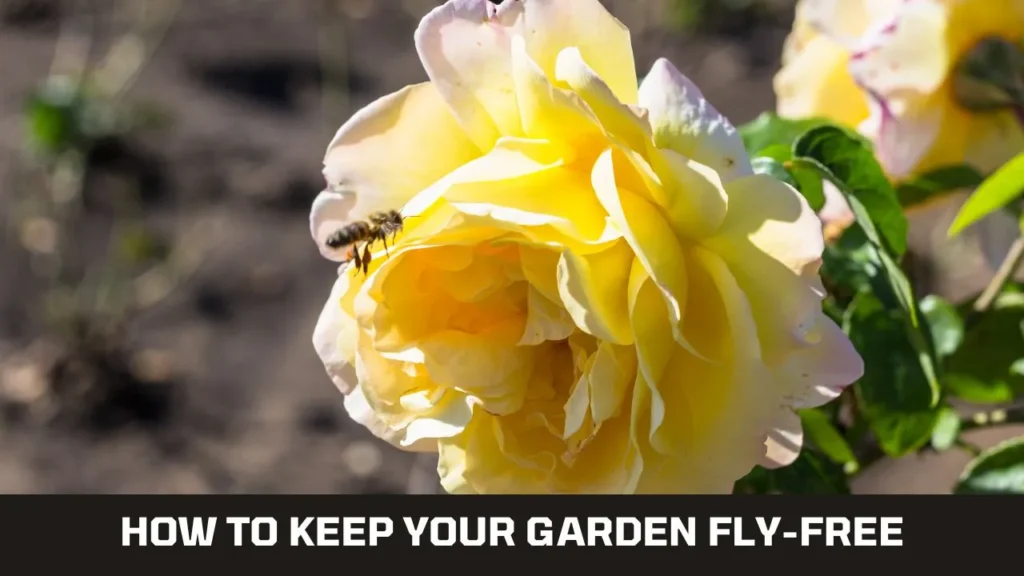As every gardener knows, flies can be a persistent nuisance. Not only do they disrupt our peaceful moments in the garden, but they can also carry diseases and lay eggs in plants, ruining our hard work.
Fortunately, there are several effective strategies to keep these pesky insects at bay. In this blog post, we’ll explore natural remedies, preventative measures, and modern solutions to help you enjoy your garden without the buzz and bother of flies.
Why Flies Invade Gardens
Flies are attracted to gardens for several reasons:
- Moisture: Flies need water to survive, and gardens often provide ample moisture.
- Food Sources: Decomposing organic matter, plant nectar, and exposed food scraps are all attractive to flies.
- Breeding Grounds: Certain garden conditions offer ideal breeding sites for flies.
Natural Remedies to Repel Flies
Using natural repellents is an eco-friendly way to manage fly populations. Here are some effective options:
- Herbs and Plants: Planting herbs such as basil, lavender, mint, and marigold can help deter flies. These plants have natural oils that flies find unpleasant.
- Essential Oils: Spraying essential oils like eucalyptus, peppermint, or citronella around your garden can repel flies. Mix a few drops with water in a spray bottle for easy application.
- Vinegar Traps: Fill a jar with apple cider vinegar and a few drops of dish soap. The flies are attracted to the vinegar, but the soap makes it difficult for them to escape once they land.
Preventative Measures
Prevention is always better than cure. Here are steps you can take to make your garden less appealing to flies:
- Cleanliness: Keep your garden clean and free of decomposing organic matter. Regularly remove fallen leaves, dead plants, and food scraps.
- Proper Waste Management: Use sealed compost bins and trash cans. Flies are less likely to be attracted to these if they can’t access the contents.
- Water Management: Avoid over watering plants and eliminate standing water where flies can breed. Ensure good drainage throughout your garden.
Modern Solutions and Tools
For those looking for more technological solutions, there are several modern tools available:
- Fly Traps: There are various commercial fly traps available that use light, scent, or sticky surfaces to attract and capture flies.
- Ultrasonic Repellents: These devices emit high-frequency sound waves that are unpleasant to flies but inaudible to humans and pets.
- Electric Fly Swatters: These portable devices are effective for immediate fly control. They use an electric grid to zap flies on contact.
Encouraging Natural Predators
Nature has its own way of balancing insect populations. Encouraging natural predators in your garden can help keep fly numbers down:
- Birds: Installing bird feeders or bird baths can attract birds that feed on flies.
- Beneficial Insects: Introduce insects like dragonflies, spiders, and beetles that prey on flies.
- Frogs and Toads: If your garden environment is suitable, these amphibians can be great allies in controlling fly populations.
How to Maintain Fly-Free Garden Environment
Consistency is key to keeping flies away. Regularly implementing the above strategies will ensure your garden remains a peaceful and enjoyable place. Here are some final tips:
- Regular Monitoring: Keep an eye on fly activity and take action at the first sign of an increase.
- Adapt to Seasonal Changes: Flies may be more prevalent in certain seasons. Adjust your strategies accordingly to stay ahead of potential problems.
- Combine Methods: Using a combination of natural, preventative, and modern methods will yield the best results.
Conclusion:
Flies can be a significant nuisance in the garden, but with the right strategies, you can keep them under control. By understanding what attracts flies and using a mix of natural remedies, preventative measures, and modern tools, you can create a fly-free outdoor space. Happy gardening, and may your garden be a serene sanctuary from now on!
